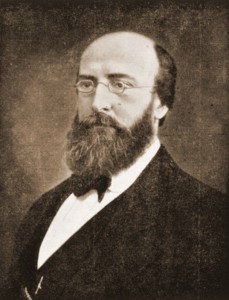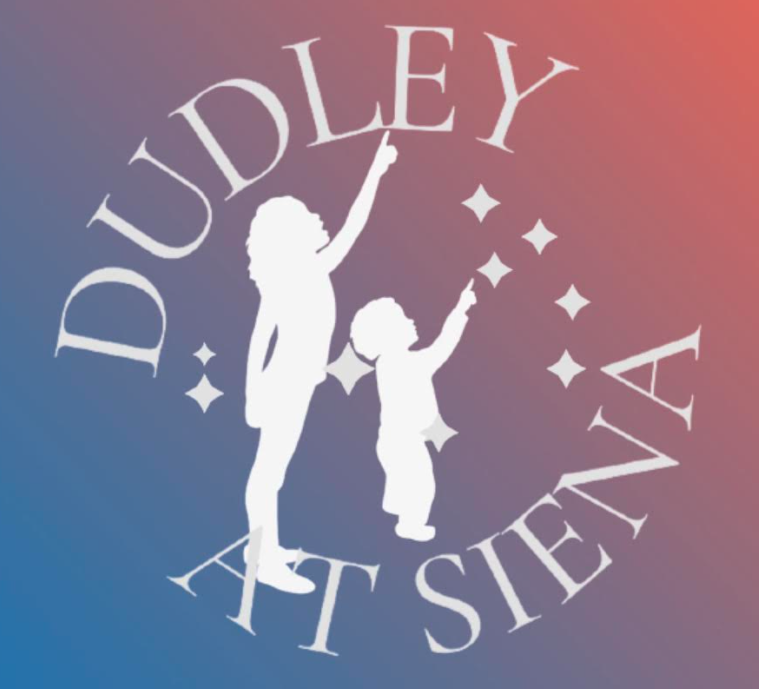A Scientific Puritan: Benjamin Apthorp Gould

Ormsby MacKnight Mitchel and James Armsby both deserve credit for inspiring and founding the Dudley Observatory. But when Mitchell was tied up working as an engineer, Armsby had to look elsewhere to find a director who could organize the construction of the Observatory building and get the instruments working. Through a developing partnership with the US Costal Survey, the premier scientific institution in America at the time, Armsby and the rest of the financial backers approached an employee of the Survey, Benjamin Apthorp Gould jr.
On paper, it’s hard to find a candidate as impressive as Benjamin Gould. To start, his Boston pedigree was impeccable. His grandfather was Captain Benjamin Gould, who served under Benedict Arnold at West Point and helped ferret out his treachery – albeit too late. Gould’s father served as principal at the Boston Latin School, considered the top classical school in early America. Due to health issues in his father, Gould was largely raised by his aunt Hannah, a respected local poet.
Gould was a prodigy, a fact that may explain some on his later eccentricities. He was reading by the age of three, and composing Latin odes at five. He dabbled in electrical engineering, building simple electrical machines and delivering lectures on the principles, by age ten. Despite having to take a hiatus between his junior and senior years due to family financial problems, Gould still graduated from Harvard in 1844, at nineteen years old.
Gould’s interests had turned to science and mathematics, and particularly to astronomy. In the 1840s, Americans wanting higher education in science still had to travel to Europe. So Gould sailed in 1845, packing letters of recommendation from sources like Harvard mathematician Benjamin Pierce and President John Quincy Adams.
Gould did a sort of academic grand tour, stopping at the greatest observatories of the day in Greenwich, Paris and Berlin. Gould was probably most impressed by Berlin, which he described as a “great scientific emporium.” He was impressed by the no-nonsense German style of science, and was particularly fond of the combative attitudes of the great German thinkers. He later admitted that he preferred to be where “scientific men fight like cats and dogs,” an attitude that would come back to haunt him.
One of Gould’s last stops was the University of Göttingen, where he studied under no less an authority that Carl Friedrich Gauss, perhaps the greatest mathematician of the age. Under Gauss, Gould would complete his doctorate in 1848, at the ripe old age of twenty three. He was the first American to receive a Ph.D. in Astronomy.
Gould returned to America at the end of 1848. Having spent three years in the greatest universities of Europe, he was taken aback at how far behind American astronomers were. America still lacked the institutions of science; not only the observatories but also the journals, libraries and great universities.
Another scientist may have just given American the laugh and headed back to Europe, where scientific institutions were more developed, and scientific jobs were easier to find. Instead, true to his Puritanical roots, Gould set out to reform American science. Supporting himself by teaching languages and mathematics, Gould relentlessly published articles on astronomy . Finally in 1849, Gould began publishing his own astronomical journal, imaginatively named the Astronomical Journal.
This was the first professional quality astronomical journal in America. O.M. Mitchell was already publishing the Sidereal Messenger, but true to Mitchel’s nature this was aimed at amateur astronomers. Gould went the other direction; only original research from professional astronomers was published. In a time period where slow communications made it difficult for astronomers to stay abreast of what their colleagues were doing, Gould’s journal became essential.
Gould’s commitment to reforming American science can be seen in his reaction to a job offer in 1851. His mentor, Carl Friedrich Gauss, offered him a position in Göttingen as a full professor and the director of the observatory. Had he accepted, Gould would likely have become a famous name in the history of astronomy. But he refused, because he was committed to staying the course and remaking American science.
This drive was remarkable, but Gould was not alone. He had some impressive allies looking to advance American science. But more on them later.
